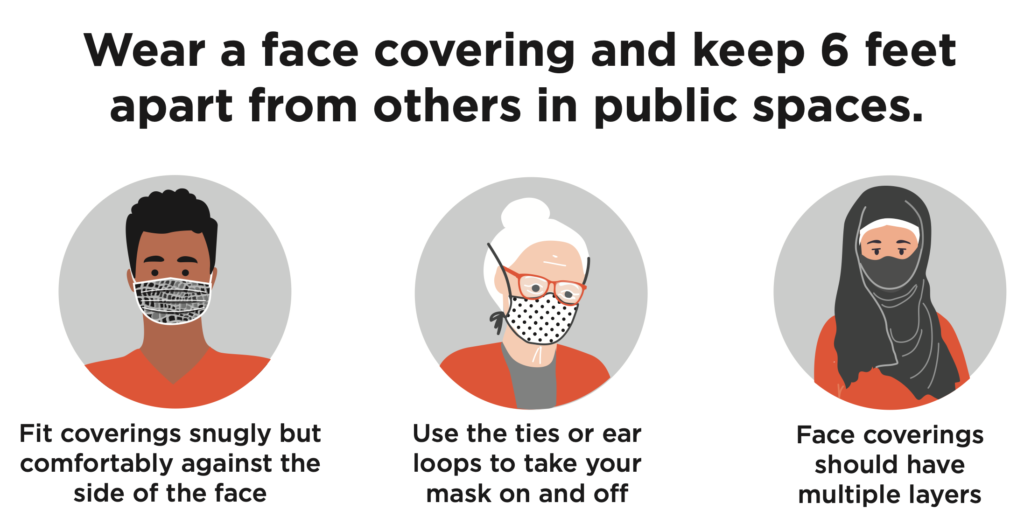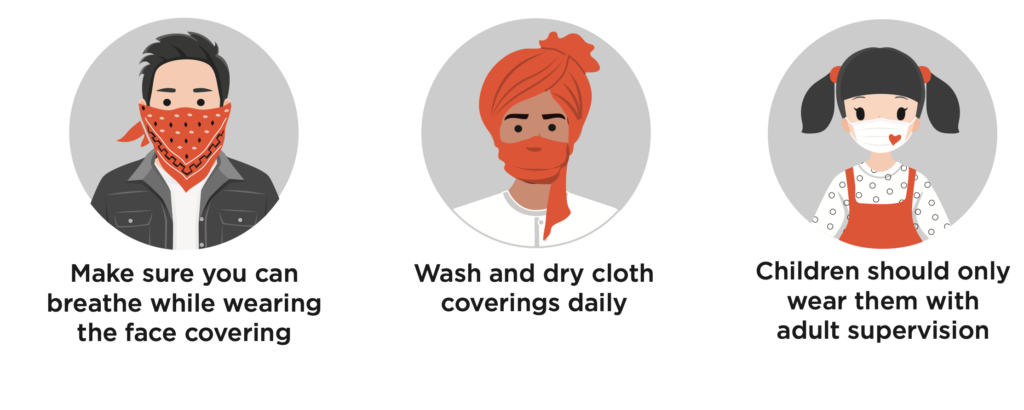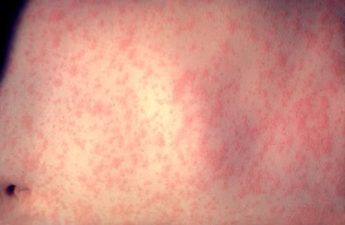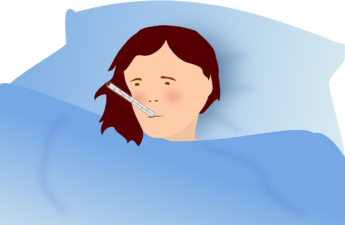
Public Health Insider, Public Health – Seattle & King County
To combat the spread of the coronavirus causing the COVID-19 pandemic, King County is urging people to wear masks in indoor public settings and outdoor setting where social distancing is difficult.
The directive was issued today by Public Health – Seattle & King County Health Officer Dr. Jeff Duchin with the support of King County Executive Dow Constantine, City of Seattle Mayor Jenny A. Durkan and other community leaders.
The directive, effective on May 18, declares that all individuals at indoor or confined outdoor public settings are strongly urged to use face coverings over their nose and mouth.
“As we begin to get back to work, the threat of increasing COVID-19 transmission is serious,” Duchin said. “. . . By wearing a face mask, we protect others from COVID-19 infection and show that we care. Your mask protects me and my mask protects you. Be safe, maintain space and cover your face.”

Directive calls on the public to wear face coverings in all indoor public places including grocery stores and other businesses, as well as outside settings where maintaining six feet of social distancing is difficult. This directive will go into effect May 18, 2020.
Health Officer Directives are based on individual compliance by the public; there is no penalty for not wearing a face covering.
Wearing a face covering can help prevent the spread of infection to others by blocking infectious droplets from spreading when someone with the infection coughs, sneezes and speaks.
Even individuals without symptoms are urged to wear face masks because some people can become infected and spread the virus to others before they develop symptoms.
In some cases, infected people never develop symptoms yet can still spread the virus to others. or even without developing any symptoms of the diseases.
Indeed, researchers suspected a significant number of infections appear to have been transmitted by infected people who do not have symptoms of infection. .

Because face masks such as N95 respirators continue to be reserved for health care workers, residents should use fabric coverings such as cloth masks, scarves or bandanas.
The Centers for Disease Control and Prevention (CDC) provides tips on how to make your own cloth face covering
The Directive applies to both workers and patrons of groceries, pharmacies, big box stores, and other essential establishments, including pet supplies, auto repairs, and home improvement stores.
Restaurants with carry-out and food delivery must comply as well. Face coverings do not need to be worn outside unless appropriate social distancing cannot be practiced, such as at farmers markets.
Exceptions to the Health Directive include children, people with disabilities, deaf individuals who use facial movements as part of communication, and others.
The Directive will be in effect until it is no longer needed and rescinded by Dr. Duchin.
Executive Constantine also announced that operators and riders on King County Metro will be required to wear face coverings.
Metro operators will not prevent passengers without face coverings from boarding, but recorded reminders will play on Metro vehicle public address systems informing riders of the face covering policy.
Security officers will communicate public health guidance to riders who are not wearing a face covering or not staying apart from other passengers.
King County is distributing 115,000 face coverings and masks through community-based organizations.
The City of Seattle is working with community-based organizations to distribute over 45,000 cloth face coverings to vulnerable communities, including people experiencing homelessness, older adults, and staff at food banks. Community partners are identifying eligible people based off their existing client lists.
The full Health Officer Directive and summary, FAQ, posters and visual materials are posted at www.kingcounty.gov/masks


